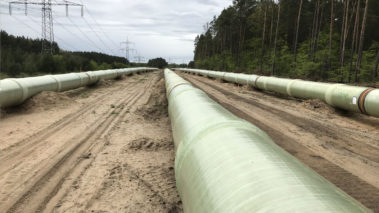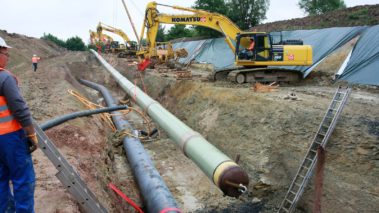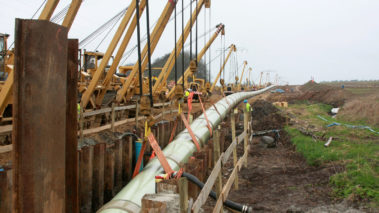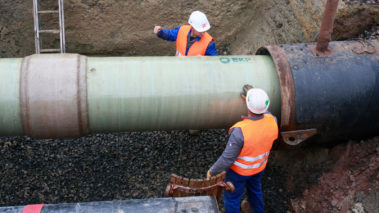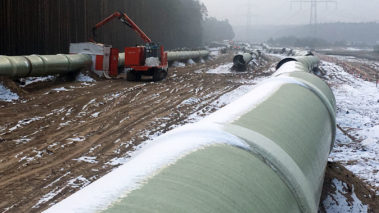GRP skids: Advantages
- Special applications possible
- Fixed fit on the GRP coating
- Variable width and height
- Available for pipes ID 100 to 1,400
- High mechanical abrasion resistance
- Freely-selectable spacing on the GRP casing
Major projects to date
Pipe jacking and horizontal drilling method (HDD)
- STEGAL (Sachsen-Thüringen-Erdgas-Leitung)
- NEL (Nordeuropäische Erdgasleitung)
- OPAL (Ostsee-Pipeline-Anbindungsleitung)
- JAGAL (Jamal-Gas-Anbindungs-Leitung)
- WEDAL (Westdeutschland-Anbindungsleitung)
References
Bisherige Großprojekte
Pipe jacking and horizontal drilling method (HDD)
- STEGAL (Sachsen-Thüringen-Erdgas-Leitung)
- NEL (Nordeuropäische Erdgasleitung)
- OPAL (Ostsee-Pipeline-Anbindungsleitung)
- JAGAL (Jamal-Gas-Anbindungs-Leitung)
- WEDAL (Westdeutschland-Anbindungsleitung)
Need for GRP skids
Skids, also called spacers, are used as additional protection for pulling into an existing pipe length. The product, developed in 2010, impresses with its extreme resilience. Additional work on the construction site is not necessary as the skids are already attached in the factory. The pipes are connected together on the construction site by means of GRP weld coating.
The around 50 millimetre thick GRP skids of BKP Berolina are made of light or peroxide-curing resins and are attached to the GRP casing on the construction site. Combined with the high-strength glass fibres, in addition to the GRP pipe coating the system protects against mechanical damage while the pipe is pulled into a microtunnel or sleeve pipe.
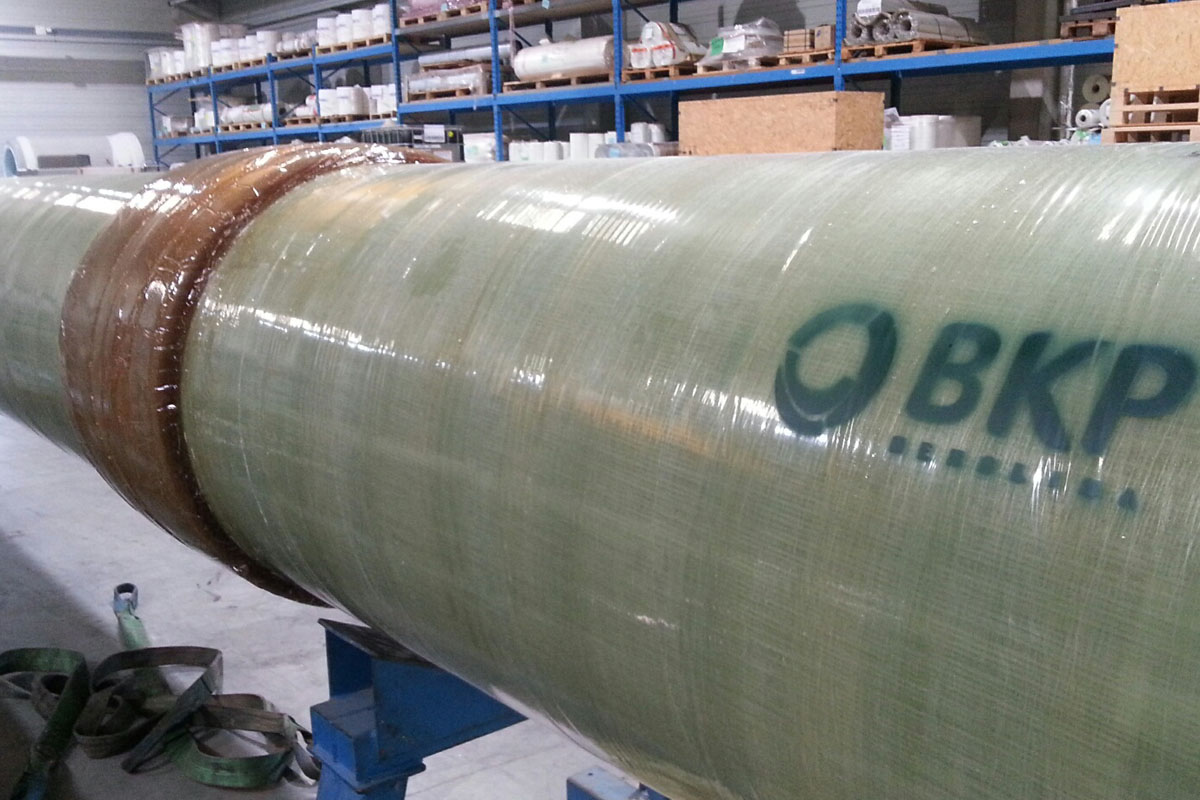
Need for GRP skids
Skids, also called spacers, are used as additional protection for pulling into an existing pipe length. The product, developed in 2010, impresses with its extreme resilience. Additional work on the construction site is not necessary as the skids are already attached in the factory. The pipes are connected together on the construction site by means of GRP weld coating.
The around 50 millimetre thick GRP skids of BKP Berolina are made of light or peroxide-curing resins and are attached to the GRP casing on the construction site. Combined with the high-strength glass fibres, in addition to the GRP pipe coating the system protects against mechanical damage while the pipe is pulled into a microtunnel or sleeve pipe.





